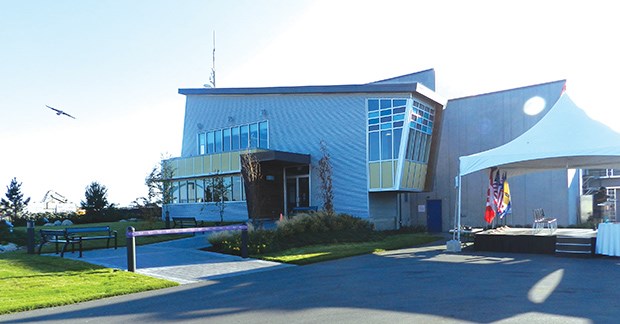More pressure is building on Metro Vancouver to control the smell wafting over Richmond from Harvest Power’s composting facility in the east of the city.
Ahead of Harvest Power seeking to renew its permit to discharge air contaminants, the regional authority has been seeking feedback from previous complainants, including the City of Richmond.
Richmond residents told the News two weeks ago how they’re railing against the smell and now the city is weighing in.
In a report presented Monday to city councillors, Peter Russell, manager of sustainability, made it clear that more needs to be done to mitigate the odours created from the majority of the Lower Mainland’s green and organic waste being processed at the site near No. 7 and Blundell roads.
Russell said that “electronic” noses should be considered at Harvest Power when it comes to judging the strength of the smell and managing it, as opposed to staff noses, suggesting those human senses go blind after a period of time.
New and more effective treatment equipment should be put in place, added Russell, as well as a “greater focus on biofilter maintenance and monitoring should be carried out.”
Harvest Power’s dispersal equipment also needs to be more efficient, said Russell, who suggested the final odour could potentially be released at a higher elevation.
The city was also concerned, as was highlighted in the News two weeks ago, that Harvest Power doesn’t appear to have a plan in place to deal with an anticipated further increase in volume when municipalities start fining those not recycling their organic waste.
“Through this (report), we’re asking Metro Vancouver to enforce the bylaws,” Russell told council on Monday.
Mayor Malcolm Brodie said that, while the city values the company — Harvest receives organic waste (food scraps and garden refuse) from a number of Lower Mainland cities, including Richmond — this is a “serious situation and sometimes there’s been an odour problem every day of the week.”
Asked by Coun. Linda McPhail if there was quantitative data on the pollution, Russell said the city is asking Metro Vancouver to define what pollution is.
So far, said Russell, the definitions appear to be subjective.
Coun. Derek Dang wanted to know what odour-blocking technology is available that is presently not being used at Harvest.
However, Harvest told the News recently that, for the most part, it’s using all technology available to it.
Brodie said he wanted to make sure that the onus to fix the problem does not fall to the city.
“(Harvest’s) job is to get it up to scratch. Metro Vancouver’s job is to regulate it and enforce it. And while we have a real stake in it, I’m a little hesitant to be directing this as to what it will take.
“So what happens when they implement the technology we ask for and it still doesn’t work? Then it’s our problem?”
Dang suggested the city contact Vancouver Coastal Health (VCH) for an opinion on the health impacts.
Complaints about the smell from the facility have increased since it began receiving higher volumes of organic waste in 2012, as cities across the region strived to divert food scraps and garden refuse away from landfills.
Harvest is asking for permission to increase some emission limits from its facility by upwards of 1,000 per cent, although it admitted it’s already pumping out that amount in VOCs (volatile organic compounds).
Metro Vancouver has said that, before it renews Harvest’s permit, it will be “negotiating” with the U.S.-based company to mitigate the odours as much as possible.



